Straw bear is burnt to mark end of Whittlesey festival
An effigy of a straw bear has been burned to mark the ending of a festival that drew thousands to a market town.
Whittlesey's annual Straw Bear Festival was revived in 1980, but it dates back to at least the mid-19th Century.
It involves someone getting covered in straw and dancing through the streets, accompanied by more than 250 Molly and Morris dancers and musicians.
Event director Gary Cook said the bear's burning "signifies the old year going out and the new year coming in".
He said the custom dated back more than 150 years, but was stopped in 1909 by the local constabulary, which saw the "straw bears" as a form of "cadging", or begging, for rewards.
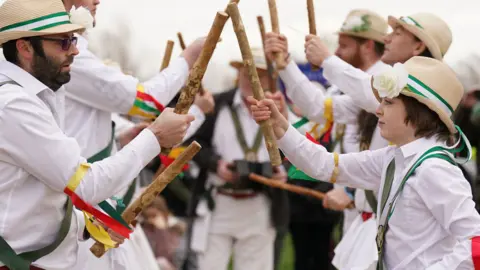 PA
PA 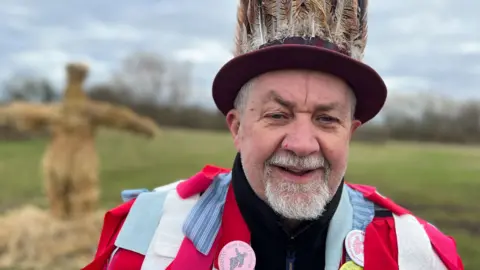 Richard Knights/BBC
Richard Knights/BBC"The plough boys used to finish the winter drilling and they'd start back after Christmas on the land and if the land wasn't in a very good shape they weren't paid," said Mr Cook.
"They couldn't do any work so they used to go around the Fenland towns, in lots of cases begging for food and drink.
"It was the only way they could survive, and in Whittlesey they used to dress up in straw, so they weren't necessarily recognised knocking on doors."
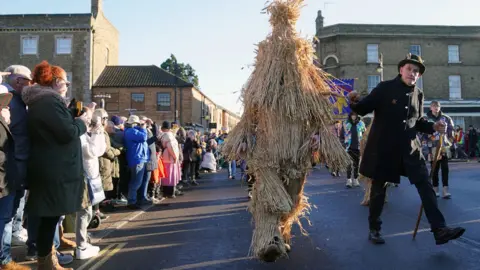 PA
PA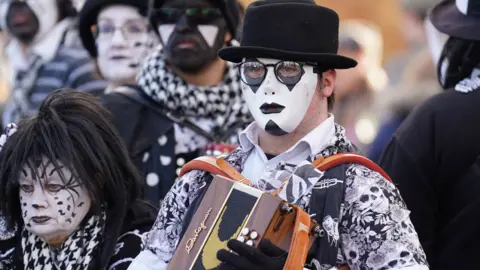 PA
PA The revived event started with a ceilidh on Friday night, while on Saturday the central participant, who was traditionally a man, was covered from head to toe in straw and danced through the streets.
The annual procession included Red Leicester Morris dancers, who don feather hats and wear red face paint, and played instruments and performed.
Meanwhile, Pig Dyke Molly dancers took their face paint to another level, sporting dramatic black and white detail when they took to the streets.
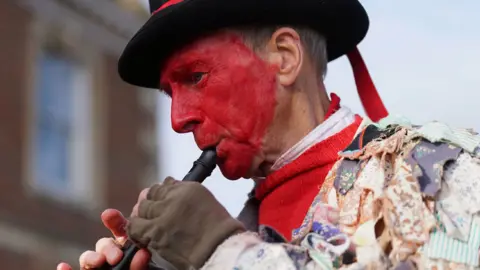 PA
PA 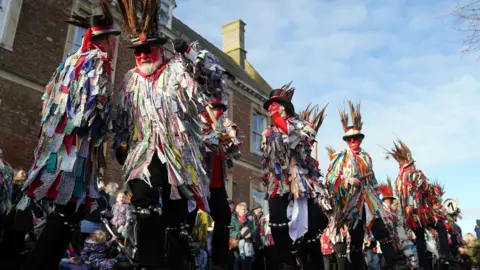 PA
PA Mr Cook said Molly dancers traditionally came from the Fens.
"They tend to be people dressed up with blackened faces and hobnailed boots because rather than the traditional Morris dancers in white, the dancers in this area came straight in off the land into pubs and started dancing," he said.
With regards to the success of the annual festival, he added: "For a small market town the income it brings in is phenomenal - all the businesses do well, all the local hostelries."
Originally the event was held on the Tuesday following Plough Monday - the first Monday after Twelfth Night.
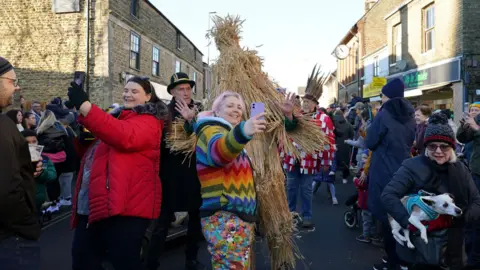 PA
PA 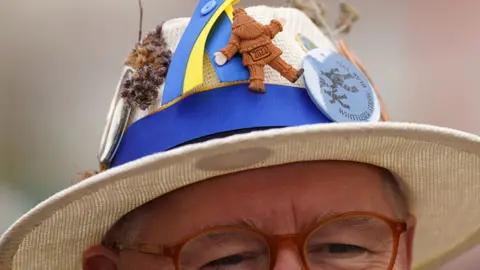 PA
PA 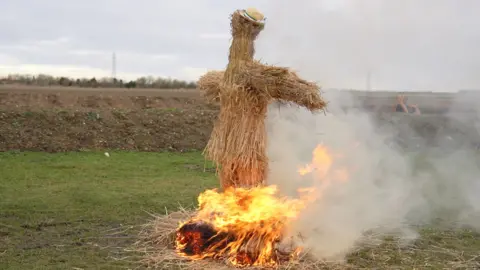 Richard Knights/BBC
Richard Knights/BBC
Follow East of England news on Facebook, Instagram and X. Got a story? Email [email protected] or WhatsApp 0800 169 183
